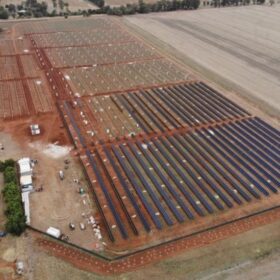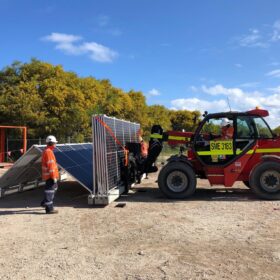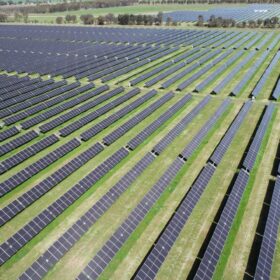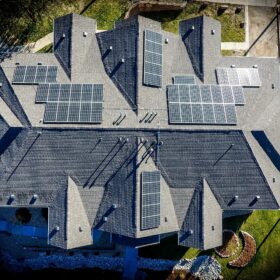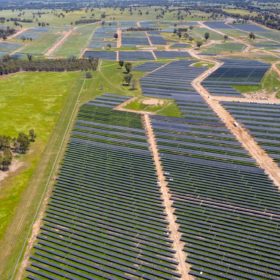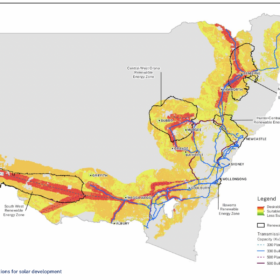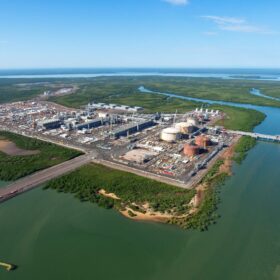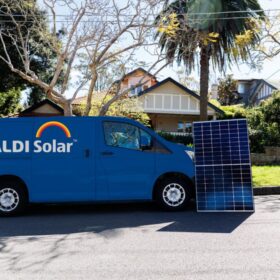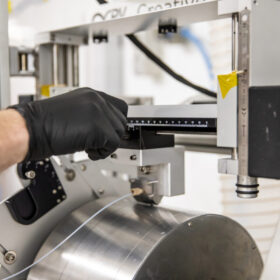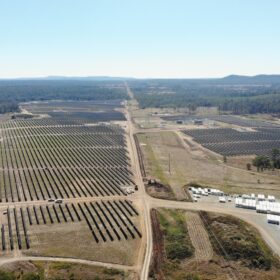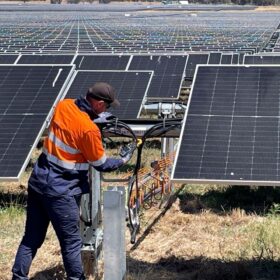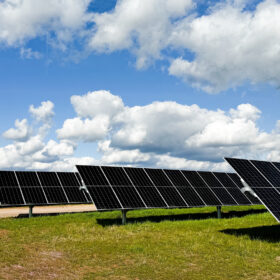Bison signs tracker supply deal for five Australian solar farms
Japan-headquartered renewables developer Bison Energy has signed a supply agreement with tracker manufacturer GameChange Solar that is to underpin the development of five Australian solar projects totaling more than 125 MW.
Former Sun Cable chief to lead Australia’s 5B
Former Sun Cable chief executive David Griffin has been appointed to the top job at Australian modular PV array manufacturer 5B where he will oversee the continued rollout of its solar energy solution.
AEMO confident renewables can counter extreme demand
Amid predictions Australia’s energy system faces a summer of extreme demand, the market operator has forecast that renewables, including 2 GW of generation capacity from new wind and solar projects, will counter the risk of power outages.
Residential photovoltaic panels with high partial shading tolerance, high voltage
Scientists from South Korea have designed new photovoltaic modules with both rectangular and triangular shapes and solar cells connected in parallel, which they said have higher partial-shading tolerance compared with cells connected in strings. The panels are reportedly less sensitive to partial-shading geometries than shingled modules.
‘Well short’: Canadian fund flags REZ risks, costs and offtake woes as causing Australian underinvestment
The managing director of Omers Infrastructure, a Canadian infrastructure fund with stakes in FRV Australia and Transgrid, has said the company is “well short” of its investment hopes for Australian renewables.
NSW gov proposes ‘standard’ benefit sharing and revised approval pathways to accelerate renewables
The NSW government has published a suite of draft guidelines for renewable projects, most notably proposing community benefit sharing fees of $850/MW per annum for solar, and $1050/MW for wind. While the guidelines are an attempt to level the playing field between communities, local councils, and big developers, some fear the proposed rules could undercut ongoing negotiations.
Samsung planning ‘mega-scale’ renewable hub and manufacturing in the NT
South Korean technology giant Samsung is reportedly looking to develop a ‘mega scale’ renewable generation, storage, and green manufacturing hub in the Northern Territory, its government has announced. However, no actual details on the size, nor any real specifics, appear to be known.
The case for ultra-deep e-methanol storage
A key success factor in managing energy crises in a decarbonised grid is seasonal energy storage or ultra-deep storage, as we like to call it. The discussion has traditionally circled around the pros and cons of different energy storage technologies like pumped hydro and flow batteries, or the feasibility of using hydrogen as a storage medium. However, the most cost-efficient solutions may actually lie outside of the electricity sector.
Message framing techniques to boost solar sales
A Dutch-German research team has tested how a series of framed messages may be used to boost PV system sales, addressing both self-interest and environmental concerns, and has found that all the proposed messages are effective at promoting the purchase of solar panel installations.
Sri Lanka launches 70 MW ground-mounted solar auction
Sri Lanka’s government-owned Ceylon Electricity Board (CEB) is inviting applications for the development of 1 MW to 5 MW ground-mounted solar projects – totaling 70 MW – with 20-year power purchase agreements (PPA).
